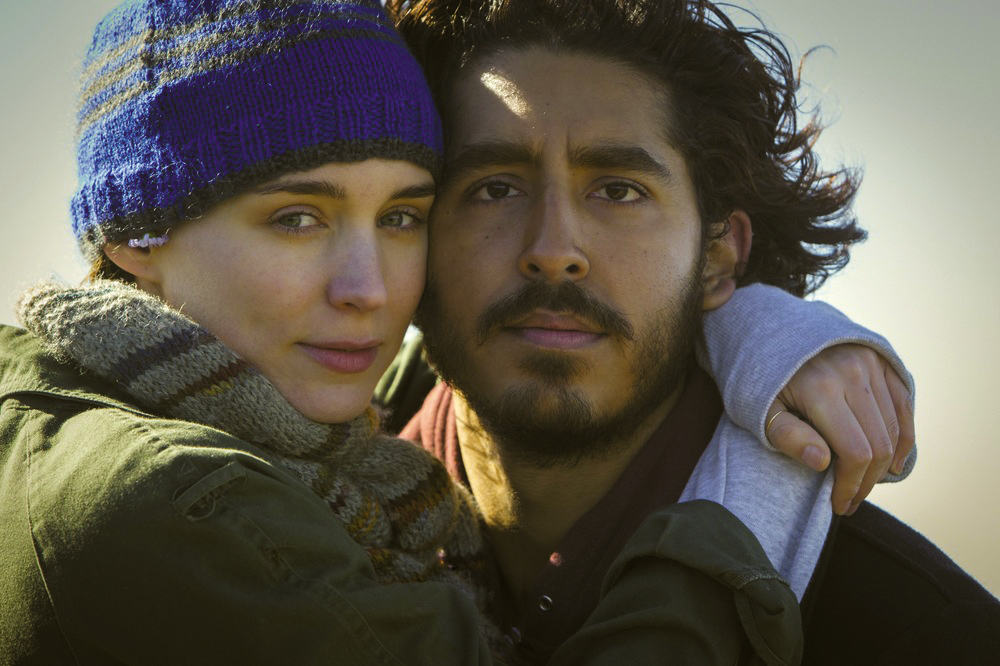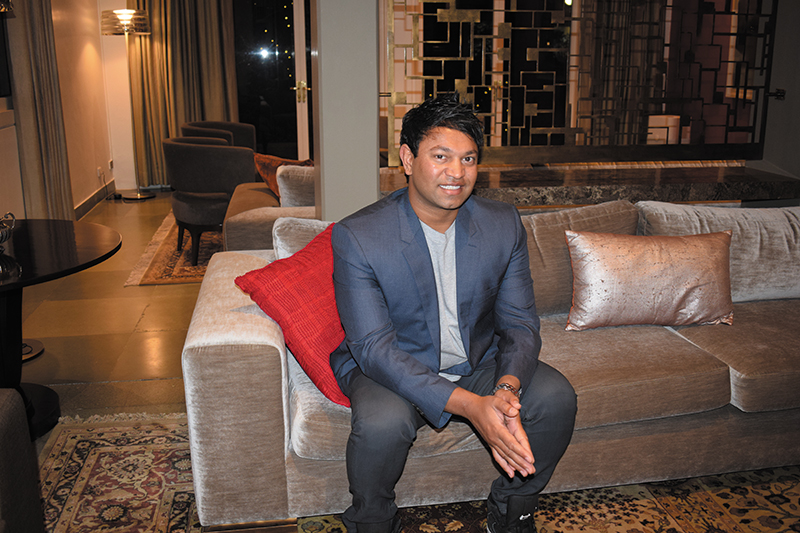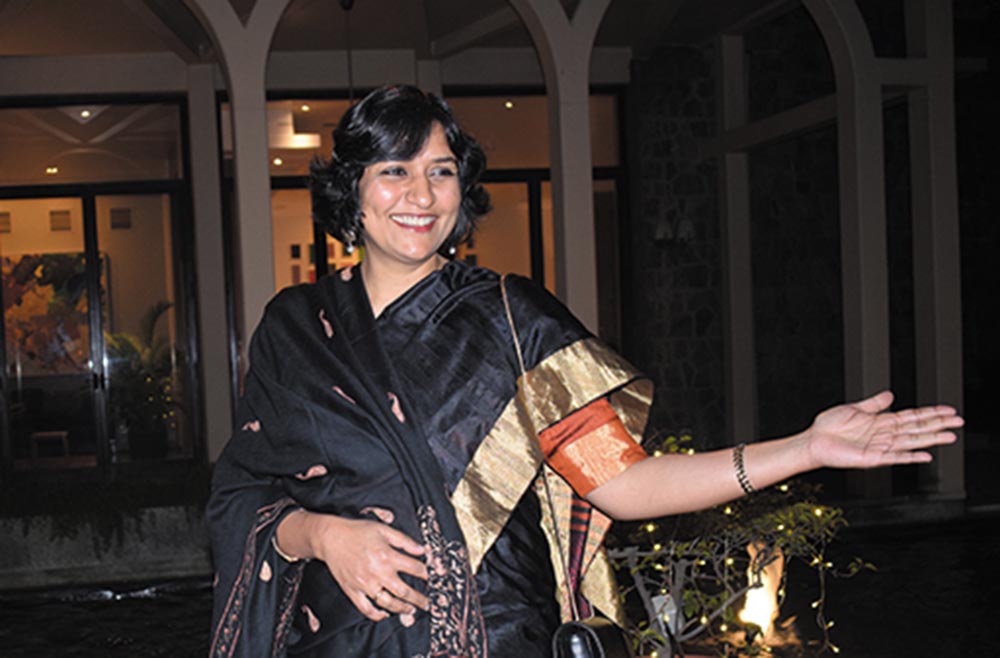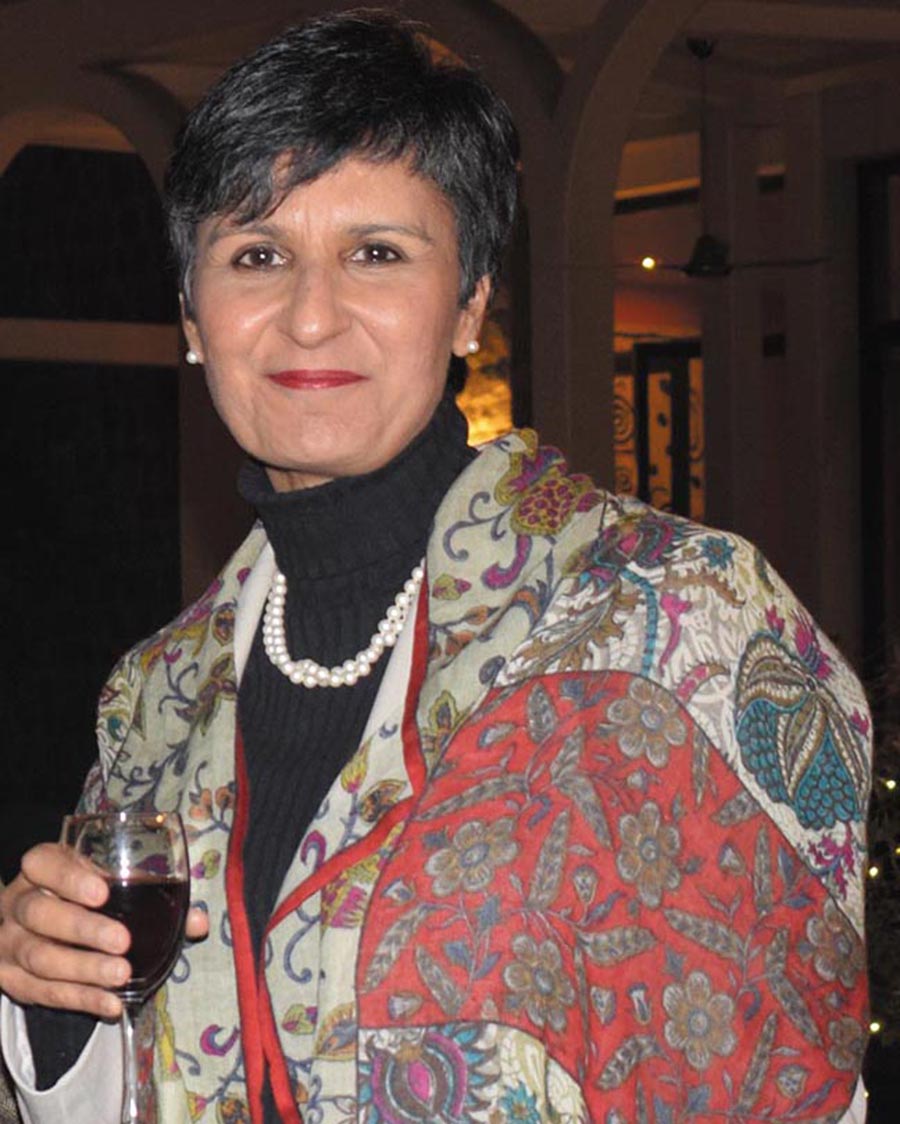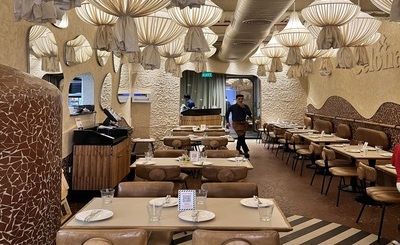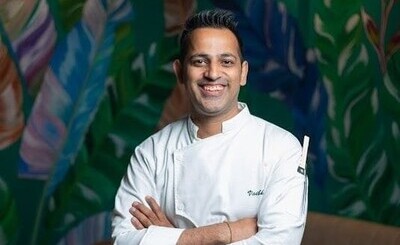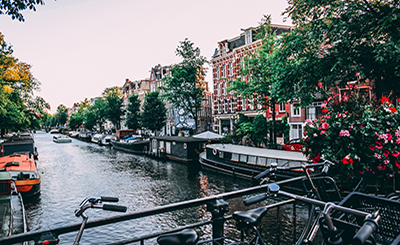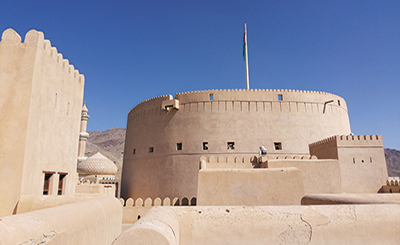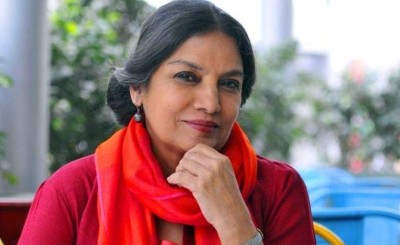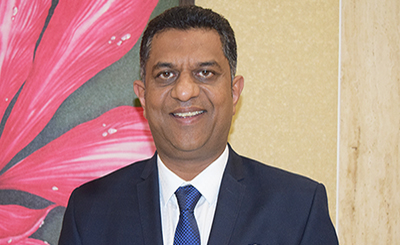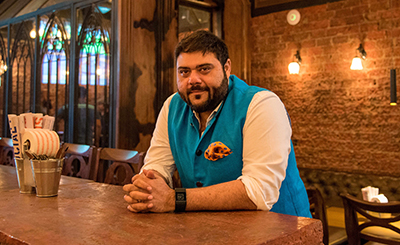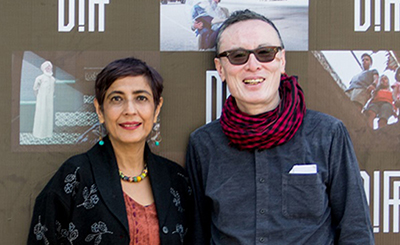To celebrate the release of the film Lion, an adaptation of Saroo Brierley’s autobiographical book A Long Way Home, the Australian High Commission recently organised an event which saw the author talk about his journey in a conversation with author and literary critic Nilanjana Roy. Brierley, 35, is an Indian-born Australian businessman who was separated from his family at the age of 5. He was adopted by an Australian couple, Sue and John Brierley. Twenty-five years later, he reunited with his birth mother, Fatima Munshi, after he managed to track the village he was born in (Ganesh Talai, Khandwa, in Madhya Pradesh) through Google Earth. Saroo’s original name was Sheru, a diminutive for sher, the Hindi word for lion, but he realised he had been mispronouncing it all the while, after reuniting with his biological mother.
A Long Way Home was published in Australia in 2013 and released internationally in 2014. The film, directed by Garth Davis, stars Dev Patel as Saroo and Nicole Kidman as his adoptive mother, Sue. The film received six Oscar nominations at the 89th Academy Awards, including Best Picture, Best Supporting Actor (Patel), Best Supporting Actress (Kidman) and Best Adapted Screenplay (Luke Davis).
Addressing the gathering, Australian High Commissioner Ms Harinder Sidhu said, “The book is moving and a genuinely true inspirational story of survival and trial against incredible odds. The story tells how five-year-old Saroo gets lost on a train that takes him thousands of miles across India away from his home and family. He learns how to survive alone in Kolkata which is where he ends up before he’s ultimately adopted by an Australian couple. Twenty five years later, armed with only the scantest of clues and most clues only drawn from his memory that he has preserved through his life, he learns the existence of Google Earth and he starts to use it to search along the train lines in an effort to find his home.”
Ms Sidhu added that like Saroo, there were many Australians who had ties with all parts of the world. “It’s a feature of being an Australian. We are a vibrant multi-cultural society. We are home to world’s oldest continuing culture as well as home to Australians who identify with 270 ancestries. This rich cultural diversity is one of our greatest strengths and it’s central to our national identity. Engagement in the publishing and literature sector is also a very important pillar of Australia’s relationship with India. So not only do we have a situation where we have 2% of Australian population who are Indian, but we try to build that relationship to build understanding between Australia and India and literature and publishing is one of those,” she said.
Edited excerpts from Saroo Brierley’s conversation with Nilanjana Roy:
Nilanjana Roy: I would just start by asking Saroo to walk us through the sections of the story as it happened to him. I want to take you back to Khandwa (Madhya Pradesh) where you were born and where you described growing up with a family that faced a great deal of hardships: Your mother used to break rocks. Her name was Kamla. You had two older brothers and your job was basically to look after your sister Shakila. But it was also a family where there was great deal of love and great deal of bonding between all of you. You have a fabulous section in your memoir where you write about going out with Shakila and playing games of hide and seek with her and fooling her into looking for you while you explored the dam, the river, the water-tower. So, could you talk a little bit about what your childhood felt like — you were 4 or 5 years old, about that age? What were you doing and what was your sense of family like?
Saroo Brierley: It was different because I came from the lower end of the society. I wished that my dad and my mom come home after work and we all get together and have dinner and sit down and tell stories and get tucked into bed, but it was extremely different. My mother went through adversity and my father left my mother with four children to look after and he ended up marrying another woman and having children with her. So, when that happened, though I met my real father 4-5 times, there was no bonding and connection with him. We were left to fend for ourselves. My brother used to look after my sister. My brother would also scavenge food and try to find money from under the seats of the carriages. I hardly ever got to see them and my mother because she was working on the construction sites carrying bricks and mortar. We didn’t go to school. We didn’t have a curfew (at home). There’d be times when I’d play hide and seek with my sister and strategise her into thinking that I was somewhere in the vicinity, but in fact I’d run away into the city… to the train station, the water-tower, the market… I was a bit of an explorer and it was fun. But at the end of the day, I should have really looked after my sister because when I came home, I sometimes had food. Most of the time, when I came back home, I didn’t have food. I dreaded to find my sister eating charcoal. She would make her frock into a little basket and carry charcoal and eat it. I knew she should not be eating it. It was really hard to see that. There were times when I was told to go out and knock on people’s doors hoping that they’d have some leftover food that I could take back to my family, but most of the time, we didn’t really get much as people cooked only enough for themselves.
Nilanjana Roy: And that was one of the reasons why you ended up going with your brother Guddu out onto the railway station towards the tracks. One of the things you used to do together was look for leftover food and look for paper and plastic that you could pick up and sell. Was that the first time that you went out with him when you went to the station that you thought was Burhanpur?
Saroo Brierley in New Delhi recently. Photo: Shireen Quadri
Saroo Brierley: There were other times that I used to go out with him, but they used to ditch me really quick and I couldn’t really run as fast as them. So, I would end up doing something else or would go back home. But we used to do things together. There was a time when we went to the fountain and we jumped in. It was a hot day and we — Guddu, Kallu and I — crossed the wired fence. All of a sudden, a gatekeeper came and asked us to get out. I got really scared. My brothers jumped over. I was so tiny that I could barely put my leg over the barbed wire. All of a sudden, the barb just went straight through my leg. Blood poured out and my brothers had to pull me out and take me to safety. That was one of the things that we used to do as fun. But with regard to finding food, we had to make do with what we found on the ground. I learnt how to tap on people’s back and pull my hands out, hoping that they’ll give me something. Sometimes, we just stood there behind them and when they turned around, they’d recognise and give a coin or a nut or something. I’m sure many people have seen that in Delhi. That was one of the things that I learnt to do.
Nilanjana Roy: And you were about four-and-a-half-year-old then. You have said that frequently you didn’t have food in your house, but had a great deal of freedom to wander. You hadn’t had the opportunity to actually go to school and learn languages and learn how to count or even learn the name of your neighbourhood or where you lived or your mother’s surname and this was when you got lost at the train station. Is it easy for you to talk about that?
Saroo Brierley: My mother didn’t really earn much. If I did really go to school, then I would learn what my surname was and the address, but because my mother had the choice of either feeding her children or pay for the rent to give them shelter, a roof over their head. So, she decided to have a house. I’m sure she thought that they’ll learn how to look after themselves with regard to food... On that night of catching the train to Burhunpur with my brother, I had the groggy feeling that made me think that he was on the carriage. Otherwise, I wouldn’t have gone on that journey onto a train with a destination unknown.
Author and literary critic Nilanjana Roy. Photo: Shireen Quadri
Nilanjana Roy: And it was an incredible journey you ended up travelling. You didn’t know it at that time but you went pretty much halfway across the country and one of the things that struck me in the retrospect was that you were on a decommissioned train which meant that there was no one else in the train with you. One of the things that might have happened otherwise would be passengers asking you where you came from and that wasn’t possible. You remember this so clearly you write about this in the book in great detail. I found it so hard to try to imagine what it would have been like to be just about five, knowing that you’re on a train not knowing where it’s going and feeling completely alone...you’re calling for your brother, you’re calling for your mother and there’s no one there. You describe the stages that you went through. There was panic and there was terror and then finally there was a kind of exhaustion and you did sleep. When you woke up, you found yourself in Kolkata, which is one of the largest and in those terms one of the most difficult cities in the world for anyone who is homeless to survive in. What were your first impressions of the city or of the crowds?
Saroo Brierley: I thought the train would somehow take me back to Burhanpur or Khandwa. I had no idea where the train was going and when I came into Kolkata. When the doors opened, there was just a river of people going to the platforms. There were streams of people coming to board the train. All of a sudden, legs are knocking me from side to side. I’m trying to figure out where I am because it 1feels so alienating and I’m scared about where’s my brother. I get knocked over and call out for salvation and consolation, but no one would help.
Nilanjana Roy: You wrote, “I began to think if I can’t get out by myself then I’ll just have to wait until someone lets me out and then work out how to get home.” You were trying to a certain extent on your memories of how you’d see your brother survive, but the next section that you wrote about — your experiences in Kolkata — they were incredibly difficult to read. You wrote about the risks that you faced, for example, you were in a group of children, who found themselves suddenly picked up in the middle of the night, herded off somewhere unknown and you ran to escape them. You met people who might have sold you to the trafficking trade, but you chose to focus continuously on the people who helped you. And even as a small boy lost in those circumstances, you hold onto that tremendous sense of gratitude.
Saroo Brierley: At that stage in the book, I was always on the run, always walking around. At the Howrah station, I didn’t sit in the corner, thinking that there’s going to be someone who’d help me because it could have been quite detrimental. I think because I was always on a move, it helped in not being taken away, but I did come across certain people that had a different idea and I guess sometimes you have to go through the rough to get to the grain and you try and let your instincts guard you as well to who would take advantage of you as opposed to those who would not. I had a gut feeling with certain people. Hence, I ran away from being in a situation of hostility. I guess that really saved me. But at some point, I trusted this teenager and did some work with him. He was a freight carrier of a trolley. He would just push that around and I would help him. But after some time, his family said they could not keep me anymore. That’s when I was handed over to the authorities and locked away in a metro police station for a few days.
Nilanjana Roy: And that’s when you found yourself being sent to the Liluah Children’s Home. And that again sent a little bit a shiver down my spine because while Kolkata had several orphanages that were pretty good and it had things like the SOS children’s villages later, Liluah was not among them, particularly in the decade that you were there. There were terrible stories coming out of abuse and beatings. One of things that struck me was this triumph of women who ended up being such formidable influences in your life. There was your mother, Kamla (she converted to Islam and changed her name from Kamla to Fatima), who at that point of time never gave up hope hope through all the years that you were away. There was your mother in Australia, Sue Brierley, and there was Mrs Sood, who ended up being the person who got you out of Liluah Children’s Home. I should say that the story is about Liluah Children’s Home involved fears that the staff would traffic the children themselves and the conditions were not good. That’s an understatement. I think it was one of those places you needed a great deal of courage and nimbleness to survive. What were your first impressions of Mrs Sood when she told you that she’s been looking for your family, but she had not managed to find them.
Saroo Brierley: I had tried to catch trains. I was thinking simply that if I’d get on a certain train, it would take me back to Burhanpur. I had gone through the hardship of almost being abducted and almost drowning twice in the Hooghly River to going to prison, then going to Liluah. Saroj Sood was my saviour because if she wasn’t there, i’d still be in Liluah and life could have been a lot different. When Sood told me that that we looked for your family but no one has come for your salvation, it was hard to take. But I had the choice of staying or going to Austarlia to meet my new family. In that situation, I thought about everything and I decided to take the new opportunity.
Nilanjana Roy: You write that when he you on the plane not knowing what to expect, you thought it would turn out to be alright because it was one of the first places where people brought food to you. And then, when you met the Brierleys, Sue Brierley comes out as a truly extraordinary person. Both your parents do. What was your first sense of family? You said you had to adjust to not just having your own room, but having things in the first place. It didn’t take you very long to adopt Sue and your father as your parents though.
Saroo Brierley: The longing of having a mother and father, it was there all the time. The bond between mother and son was created at the first sight. One of the things which I remember very vividly is that I had this massive chocolate in my hand. It was the biggest chocolate that I had ever seen. I called it Cadbury’s. I remember going up to mom and she was looking at my hand because it was dripping chocolate on to the ground. She got some tissues out and wiped it all off and gave me my Koala Bear. And at that point, the bond was created because she was so maternal, so loving and caring and so was dad. The transition of coming from India to Australia and blending in and gelling was extremely quick because mom was honest with information. My adoptive mother understood that this child must be quite traumatic in the things that he has gone through and lived. So, she facilitated things like house decoration, Indian food, etc. As time went on, she would be sitting me down on a rainy day, talking about my past life and who I remembered and the things that I used to do and she would keep a book and just write everything down. She has got two thick books full of information. Sometimes, she’d say why don’t you draw your hometown the way that it’d look and so I’d draw it. I can’t believe it that today it’s still there and she has actually kept it.
Nilanjana Roy: One thing that emerges from here is that how much she needed a family herself. How long she waited to have someone like you. And then your brother, Mantosh, joins them. But you assimilated very fast and it became your country quite soon.
Saroo Brierley: I think that transition was quick because I had gone through so much, I had been in a transition all the time. And then all of a sudden something that I had been longing for happened.
Australian High Commissioner Ms Harinder Sidhu. Photo: Shireen Quadri
Nilanjana Roy: A lot of your memories of Hobart (the capital of the Australian island state of Tasmania) and Australia are to do with the outdoors and the sports that you picked up on. As Mantosh comes in, you become part of the family. But he had a much more tragic background. Do you want to talk about that?
Saroo Brierley: His story is entirely different from mine. His mother ran away and his grandmother looked after him mostly. There were also his uncles there, but they were abusive and they did things like butting out cigarettes on his hands. So, he got all these marks on his left and right hands which you know psychologically would be extremely scarring for him. He isn’t settled till date, but he is in a good place because he has got me and mom and dad to sort of nurture about his past. He would talk to me about his past and he would not share it with anyone else because they wouldn’t understand it. But from what he was as a child to what he has become now is an amazing transformation because he could have gone in a different direction.
Nilanjana Roy: I also wanted to ask the thing about the shared experience — the bond between you and Mantosh and the sense that again there was this circuit of children across the world with whom you might have had these experiences. When you went looking for your home in India and your Indian family, you write that you didn’t come to it with the sense of incompleteness. You didn’t have a sense that something was missing or that you lacked something. You felt at home. You had your family in Australia. You were Australian, but you felt something that you wanted to still reach out to, you wanted to know what had happened to them and you wanted them to know what had happened to you and was this when you discovered Google Earth and started to look or was that .....?
Saroo Brierley: This anomaly is a massive anomaly of what had happened to me in the past. There was no closure and there was a yearning to find out about my family. Were they still alive? Was my sister still there or had she died? There was this beacon within me that was just getting bigger and bigger. There were dreams and the astral projections at nights. I’d wake up in the morning, feeling quite tired. It got to the point where I had to execute and do something about it. I had a lot of friends who would talk about what dreams meant and they had a book and I looked it up. But I was still quite young to understand what dreams meant. I didn’t really talk about it with people. I had to do something about it and then Google Earth came into play. It was just perfect timing because I had got these amazing images in my memory of my hometown and the landmark and I thought having Google Earth, I could pair the two together. It was a six-year-long journey of trying to find trace my mother.
Nilanjana Roy: You write that India was unfamiliar when you went back and so there was a great deal of dislocation to deal with as well. What was it like getting on a train and going back to find home?
Saroo Brierley: I’d be thinking about India so much. I remembered rural life of farming, trees, animals and the environment. I remembered everything absolutely and vividly and perfectly. I just couldn’t wait to get to Khandwa which was the moment of truth because I had seen it, but being in the streets is another sort of experience.
Nilanjana Roy: And then you get off the train, and because you have a photographic memory, you found your way back not just through the town, but actually to your home.
Saroo Brierley: It was absolutely crazy. I came back to the train station and I just looked around and everything just lit up and from exactly where I was if you told me to go to the market, I’d go. If you told me to go to the waterfall, I could go there. I could close my eyes and just lead you to all these places. I came to the junction, a place called Teen Phuliya, which is an underpass through which people would go to the neighbouring suburbs and also to the CBD (central business districts). But from that point, I went through the underpass. And, all of a sudden, there is a junction. My legs just went into an auto mode. I could just close my eyes and these legs had a memory of themselves. I’m walking towards my suburb. Things felt a bit odd. Everything looked so small, buildings decaying and falling over. I stopped and thought I got to go back. This isn’t right. My mind was playing all these games. And so I stopped for a second and gave myself a reason: everything looks small because you are tall. When you are a kid, everything looks so big. So, I reasoned with myself and I just kept surging on towards my suburb. And I got there within a few minutes. I was looking at a house which had decayed and was falling over. It was empty and there was no one there.
Nilanjana Roy: And that was an incredible moment to realise that you’d come all the way back. You had spent five years looking for home and then there was no one around. You didn’t have the language by that time. You had forgotten Hindi and you had forgotten other Indian languages as well. How did you handle that?
Saroo Brierley: I thought that my family had died and I was just looking around and I didn’t know what to do. Should I go back home? Should I take the next flight to Australia? All sorts of things were going through my head. I didn’t know how to control it. And then this woman came out of the adjoining house and she asked if she could help in rude Hinglish sort of accent. And I thought that the best way to combat this is that I can’t really have a conversation with her, but I’m going to tell her that I used to live here. I pulled out an A4 piece of paper that had photos of me as a five-year-old and I showed it to her. I said to her that’s me and I used to live here. My name is Saroo and I have got two elder brothers — Guddu and Kallu. I told her about Shakila and my mother Kamla and she got the idea. She said they didn’t live there anymore. A few more people came around. A man told me to stay there, promising to come back. When he came back after 10 minutes, he told me, ‘Come with me. I’m going to take you to your mother.’ And a few meters around the corner, there were three women standing adjacent to each other at the entrance of the house. The man asked me to identify my mother. The second one moved forward and I moved towards her and that was a major sort of pivotal time
Nilanjana Roy: And one of the first things that your mother said to you was that she had never stopped, she looked for you for the longest time in all those years. There is so much more to talk about out here — there’s a meeting between both of your mothers, your birth mother and between Sue later, and I think there is also the incredibleness of finding two families and at the same time not feeling split. At some point towards the end of the book, you write that you didn’t have an identity crisis. You knew who you were and you knew where you came from and you knew also where home was, but now you had two families in different parts of the world.
